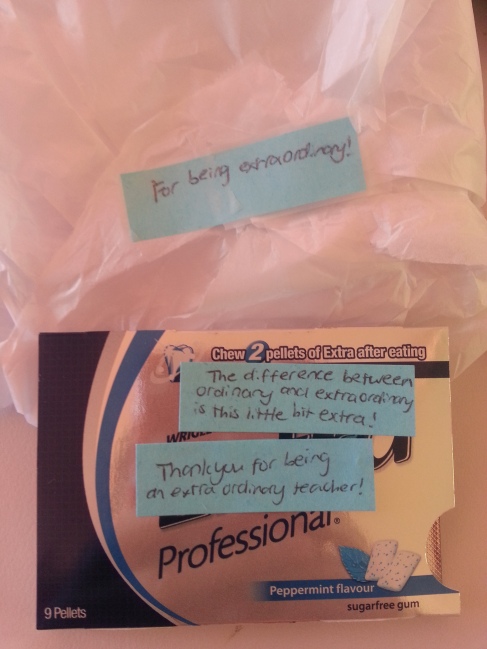I am working on creating an assignment for one of my maths classes. It’s pretty good, even if I did find the initial idea for it on the internet. My issue is – I think it would work really well as an interactive website, but the amount of red tape I would have to go through to make that happen – in a school that says they are forward thinking with technology – is just not worth the struggle. I think I’m going to have to go back to the trusty pen and paper for this one.
Someone told me a few months ago was that the online world and the ‘real’ world are not seperate – they are in fact one and the same. If this is the case, then we should really be breaking down the barriers to functioning in an online space, whether it be as a business, a professional, a school, or a student. The earlier that kids learn how to safely function online the better, as that is the world that they will be living in when they graduate. If they are prevented from interacting online in a supportive environment throughout their schooling years, what are they going to do when they are suddenly in the ‘real world?’

As for me and my assignment, I’ve decided to go with pen and paper for the time being. I have suggested to my colleagues that we work towards having an interactive space in the future where students are able to collaborate both with their teachers and each other online, however the amount of paperwork and meetings and permission and red tape that would be involved for that to happen at the moment is just too much.
We know we are going through an educational revolution. We are no longer churning out industrial workers, and because of this, chairs and tables in rows and the teacher at the front of the room isn’t going to cut it anymore. If we are trying to make big changes to the way education is taught and the way schools function, we can’t just wave a magic wand and let it happen overnight. Big change requires time, as well as a shift in culture and in attitudes.
The content and way the material is presented is already a shift – I am trying to encourage my students to apply their knowledge and thinking to real world situations, and to integrate their knowledge over a number of curriculum areas. This will already be a big shift for them. Remember, students expect school to be the same as the way their parents have experienced it, and vice versa. The same applies to teachers too – but that is a subject for another day.
Baby steps.









